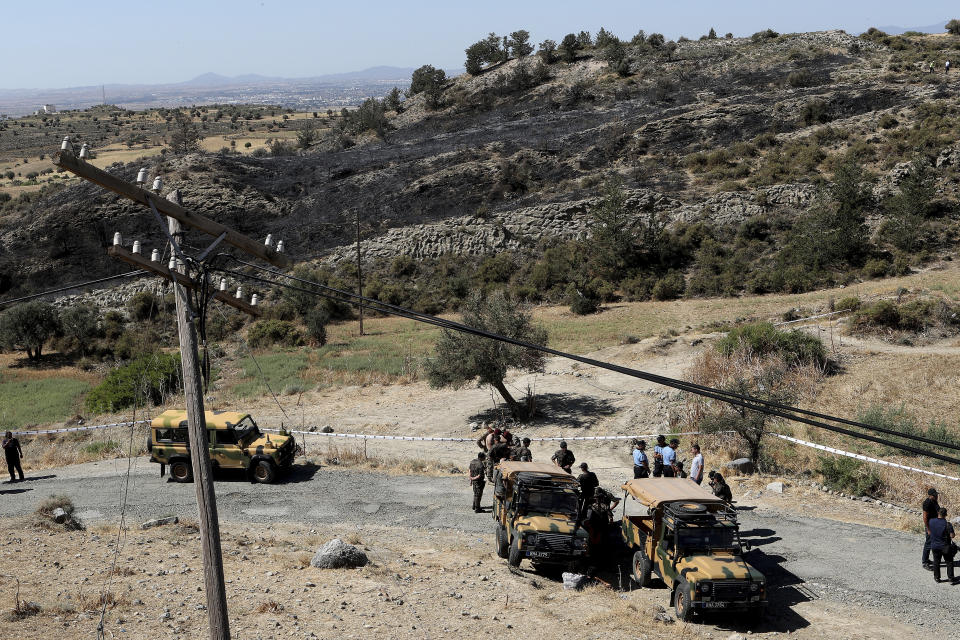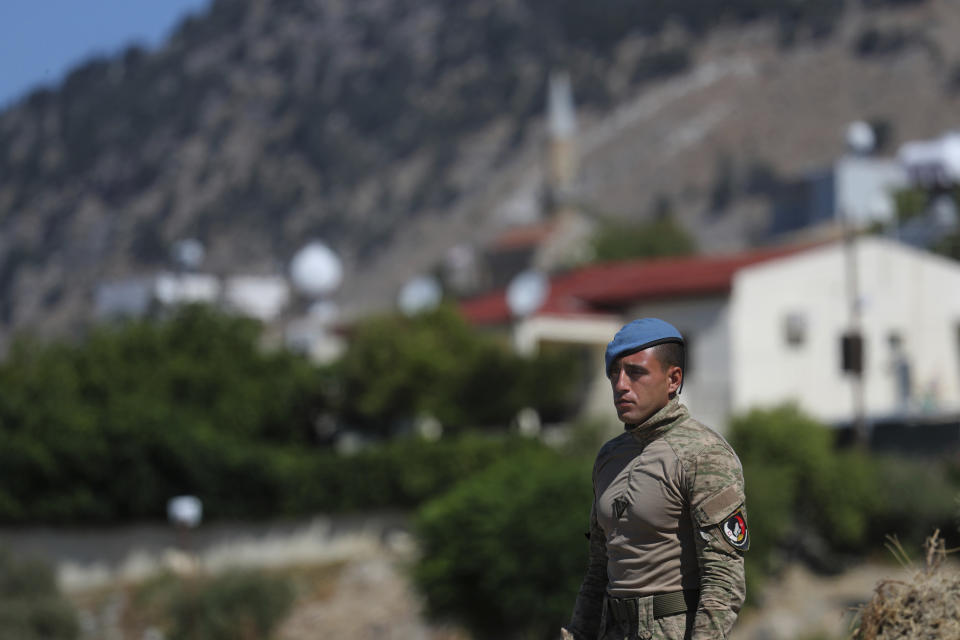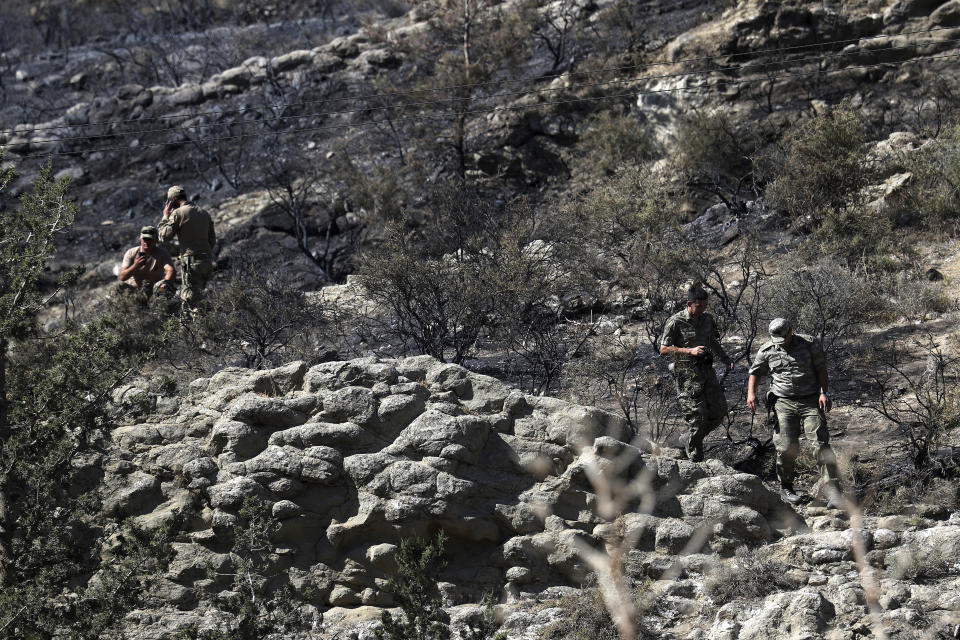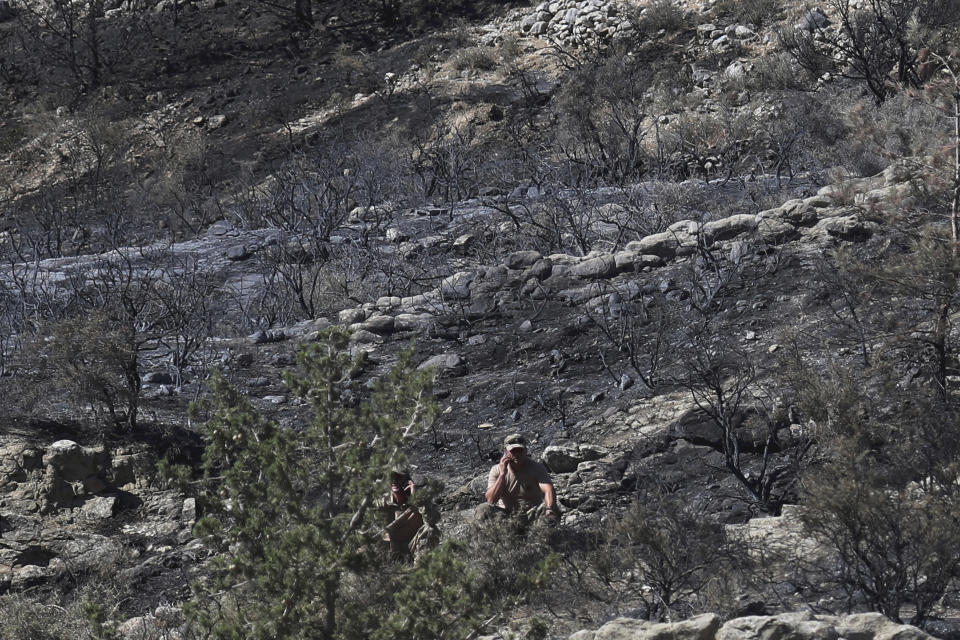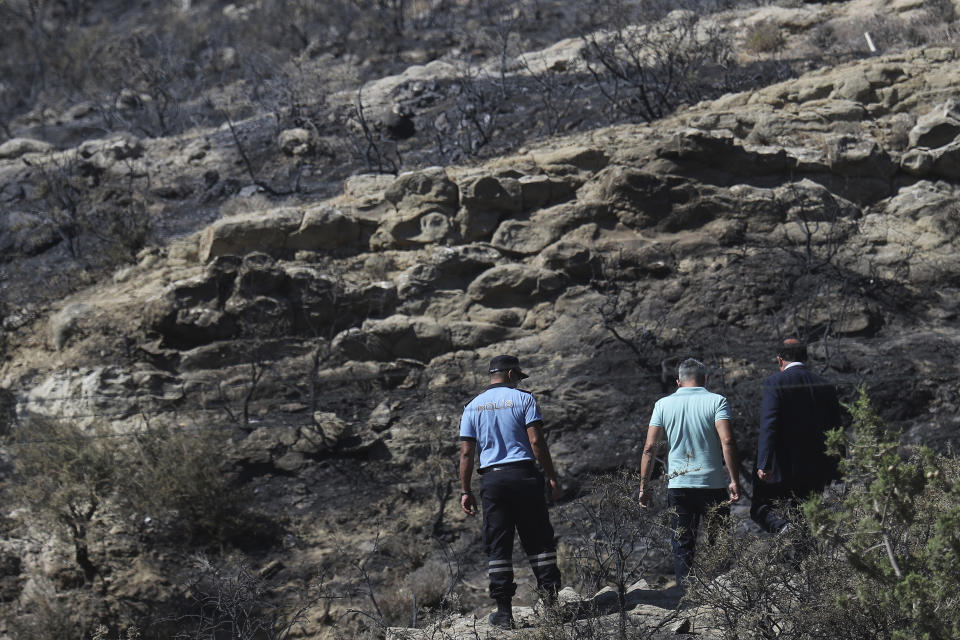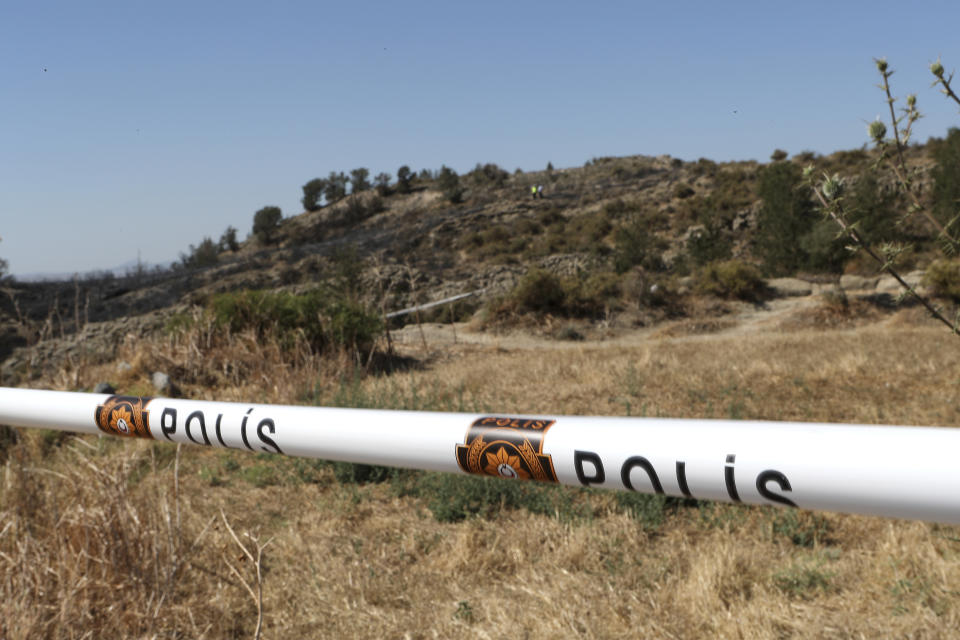Turkish Cypriots blame Syrian missile for blast near village
NICOSIA, Cyprus (AP) — A Syrian anti-aircraft missile that missed its target and reached ethnically divided Cyprus around 120 miles away was the likely cause of an explosion outside a village in the breakaway north, Turkish Cypriot officials said Monday. No injuries were reported.
Ersin Tatar, the north's prime minister told a news conference that debris found near the village of Tashkent where the pre-dawn explosion happened were pieces of a Russian-made S-200 missile. Tashkent lies on the foothills of the east Mediterranean island's Pendataktylos mountain range.
Police cordoned off the main debris field. At least five pieces of missile debris have been found in two nearby villages. Fire crews contained a blaze that flaming debris ignited outside the village.
Tatar said there was no reason for any alarm that this could soon happen again and assured there were no risks to public health since there were no poisonous or toxic emissions from the missile.
Foreign Minister Kudret Ozersay said writing on pieces of the missile was similar to that found on an S-200 missile that crashed in Gaziantep, Turkey in July 2018.
He said information investigators gathered about the missile at the scene was in line with data obtained from military officials and foreign diplomats.
Earlier, Ozersay said on his personal Facebook account that missile could have been part of an anti-aircraft battery had missed its target during overnight airstrikes in Syria.
Ozersay said the missile likely blew up in flight because there was no impact crater and pieces of the object were found several kilometers from the main debris field outside of Tashkent, or Vouno, as it's known by its Greek name.
He said a four-member team of experts from Turkey will arrive in the north to examine the debris field and test for any toxic substances.
Intensive Israeli airstrikes against targets in Syria were taking place at the time of the blast at around 1 a.m. local time.
Cyprus was split in 1974 when Turkey invaded following a coup by supporters of union with Greece. The country's internationally recognized government is seated in the Greek Cypriot south. Only Turkey recognizes a Turkish Cypriot declaration of independence and keeps more than 35,000 troops in the north.
Turkish Cypriot leader Mustafa Akinci said he conveyed his gratitude to a Greek Cypriot offer for any assistance during a phone conversation with United Nations Peacekeeping Force Chief of Mission Elizabeth Spehar.
Cyprus' Foreign Ministry said in a statement that it's in touch with the governments of friendly neighboring countries and other nations to gather information about the incident. It said there are no "definitive conclusions" at this time about what caused the explosion.
Speaking on Cypriot state broadcaster RIK, retired Greek Cypriot National Guard Lieutenant General Andreas Pentaras speculated that it was an unlucky chain of events that took the missile over Cyprus, including its launch in the island's "general direction" and that its self-destruct mechanism designed to activate seconds after missing its target had apparently failed.
The explosion even shook residents of the divided capital Nicosia several kilometers away.
